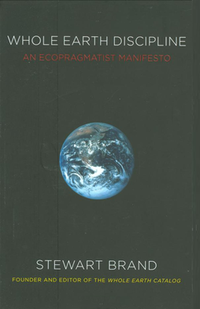
Greenpeace has been doing great guns here with their “Sign On” campaign, fronted by a mix of celebrities, businessmen and scientists, and representing a range of political views. They’re at over 160,000 people as I write, which is pretty good for an NZ campaign. If you’re a Kiwi, you should go Sign On too.
Their latest angle has been to push NZ Prime Minister John Key to go to Copenhagen – it’s been a bit of a goofy campaign, raising money through cake stalls and sausage sizzles up and down the country, and then turning up at Parliament with the princely sum of $5000 to pay for his travel. Key didn’t acknowledge their publicity stunt offer, but they’ve done a good job of getting the idea out there that Key should go. And I agree, he should go. Seriously, what is bigger than Copenhagen? This is more than likely the single most important international meeting that will happen during Key’s time in office, so why would he skip it? (Unless it’s because he knows our climate change position is indefensible, and he’s afraid to front up? We certainly didn’t earn any favour at the Barcelona talks, with Geoff Keev reporting that NZ’s statement was met with undisguised derision. And Fred Pearce in the UK Guardian came out guns blazing at our hypocrisy over environmentalism and climate change. We deserve the pummelling, quite frankly. More of it would probably help us start to do a better job, because we care what other countries think of us.)
I’ve been arguing for a long time that high-level movement on climate change will ultimately be driven by social connectedness. Change will slip in quietly as politicians and business leaders have conversations with their children’s friends, or see their neighbours recycling and taking a bus instead of driving. Getting John Key and other leaders together at Copenhagen is that process writ large. Political talk is always distinct from political action, of course, but I believe the experience of a wide representation of global leaders talking about the real threat of climate change will have an effect on those same global leaders. This isn’t a wrangle over the Middle East or Darfur – here, everyone will be agreeing on the same bottom line, that this is an urgent, global crisis requiring co-ordinated collective action. It will be powerful stuff.
But, of course, it only counts if it’s the head of state. If it’s a lackey – even a very high-up lackey, as high as Nick Smith, our Minister for the Environment – then it doesn’t work, because responsibility rests with someone who’s out of the room.
So I want John Key to go. But he doesn’t want to.
Even though expectations for Copenhagen have been downgraded, Al Gore has been pushing an optimistic line, saying that Copenhagen is step one and will start something around which momentum will build. And I think he’s right. Action on climate change comes from a social feedback loop; as political actions are taken, the electorate’s demand for action grows, so more action is taken. The political ground on climate change is shifting quickly. Its only three years (almost to the day) that I wrote a Now We Have Won post, saying that the argument is over and it’s time for action. The international consensus that now exists is a huge development from then – for example, Obama and Aussie PM Kevin Rudd have both fiercely attacked those who deny the science and seek to delay action – this from the two countries who didn’t sign the Kyoto agreement. Gore, it seems to me, has the right view on things, that Copenhagen should start things moving, and we can build on it once it’s on a roll.
(Rudd’s speech is a humdinger – there’s a good summary here.)
(And while I’m talking about positive action, shout out to beloved Scotland, which is seriously doing the business and putting other developed nations to shame. Nice one team!)
Greenpeace’s SIgn On campaign is now looking ahead to December 5, where it will hold a huge “Planet A” event in Auckland, Wellington and Christchurch to put some pressure on Copenhagen. (“Planet A” as in, “There is no Planet B”.) My favourite part is that a huge haka is being planned for Auckland, challenging the negotiators to pull finger and make something happen. (Oddly enough when this was in the early planning stages I was contacted via friend-of-friend links to give some advice. So I swapped a few emails discussing marketing and flashmobs and twitter with early Greenpeace-er Susi Newborn, who was part of the team who first bought a ship and named it ‘Rainbow Warrior’. New Zealand is a small place!)
(By the way, I hope like hell someone in Copenhagen turns up to demonstrate with a giant puppet Reptilicus. I mean, Reptilicus had to be released from its frozen tomb and thawed out before it could terrorize Copenhagen. Climate change might deliver a whole horde of Reptilici to feast upon the world!)

Oh, also: heard yesterday that a friend who contacted the Sustainability Trust to volunteer for them was immediately asked, “Are you the person acknowledged in Morgan Davie’s thesis?” So it is being read by at least the odd person, which is pretty cool.





